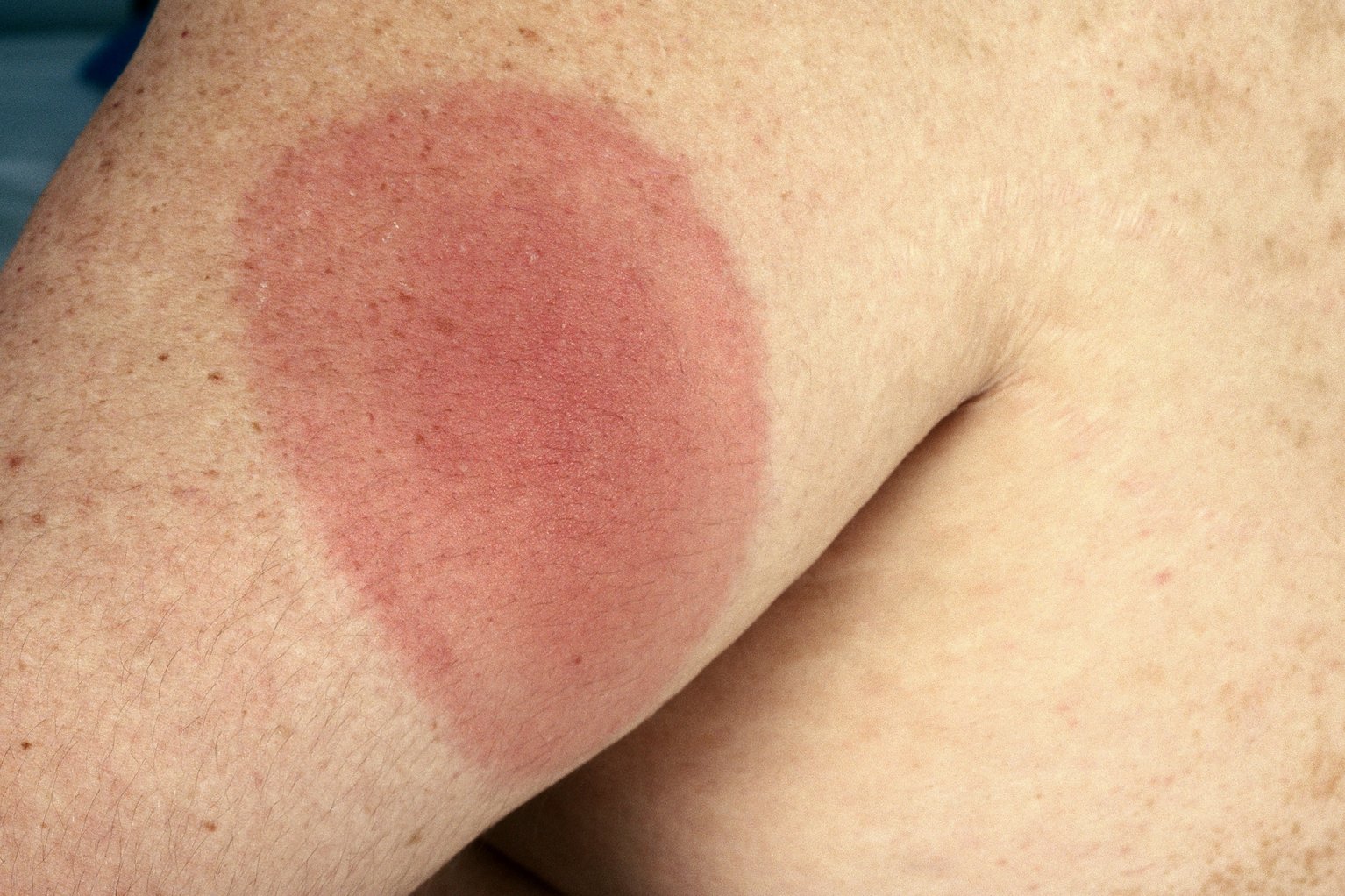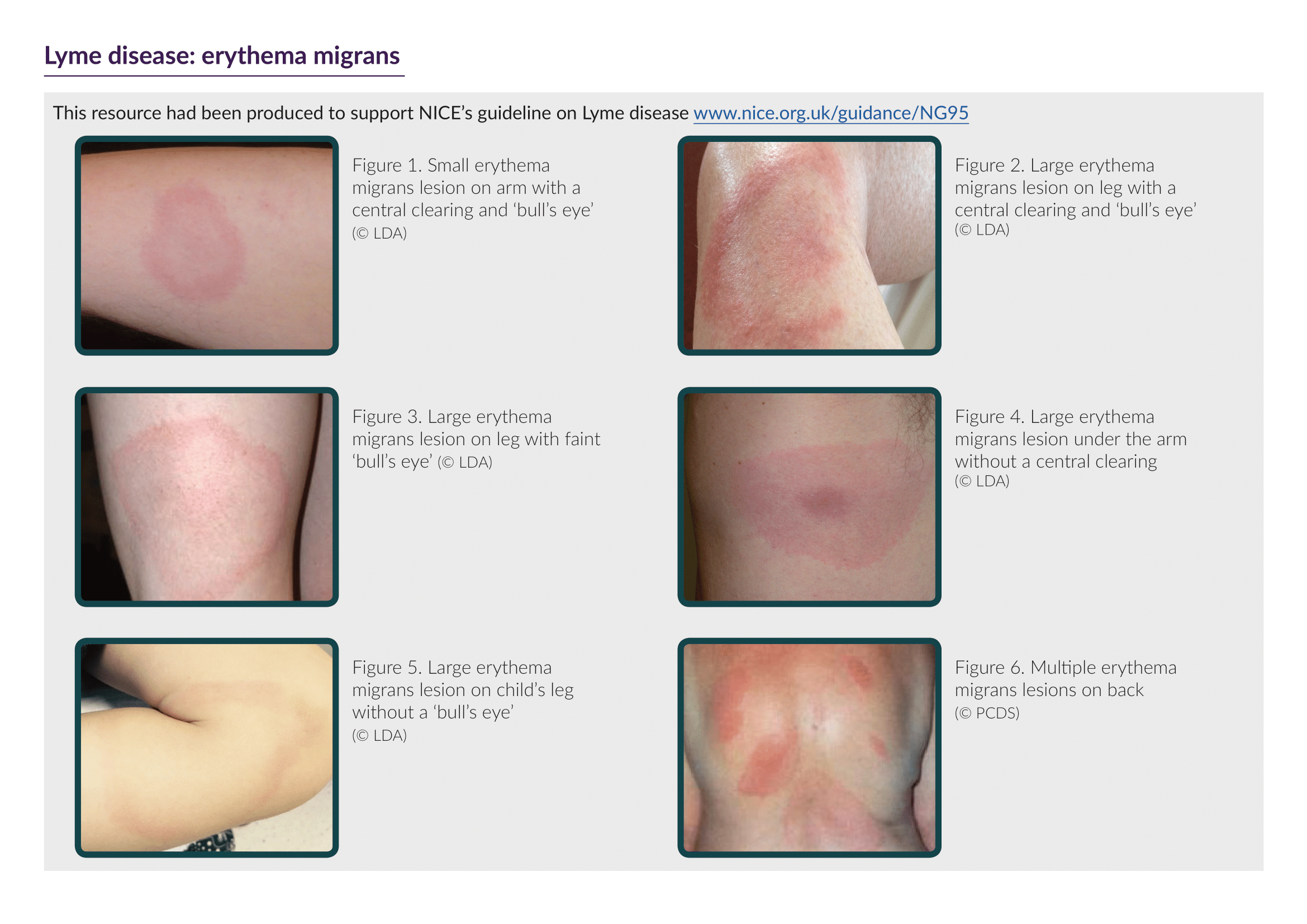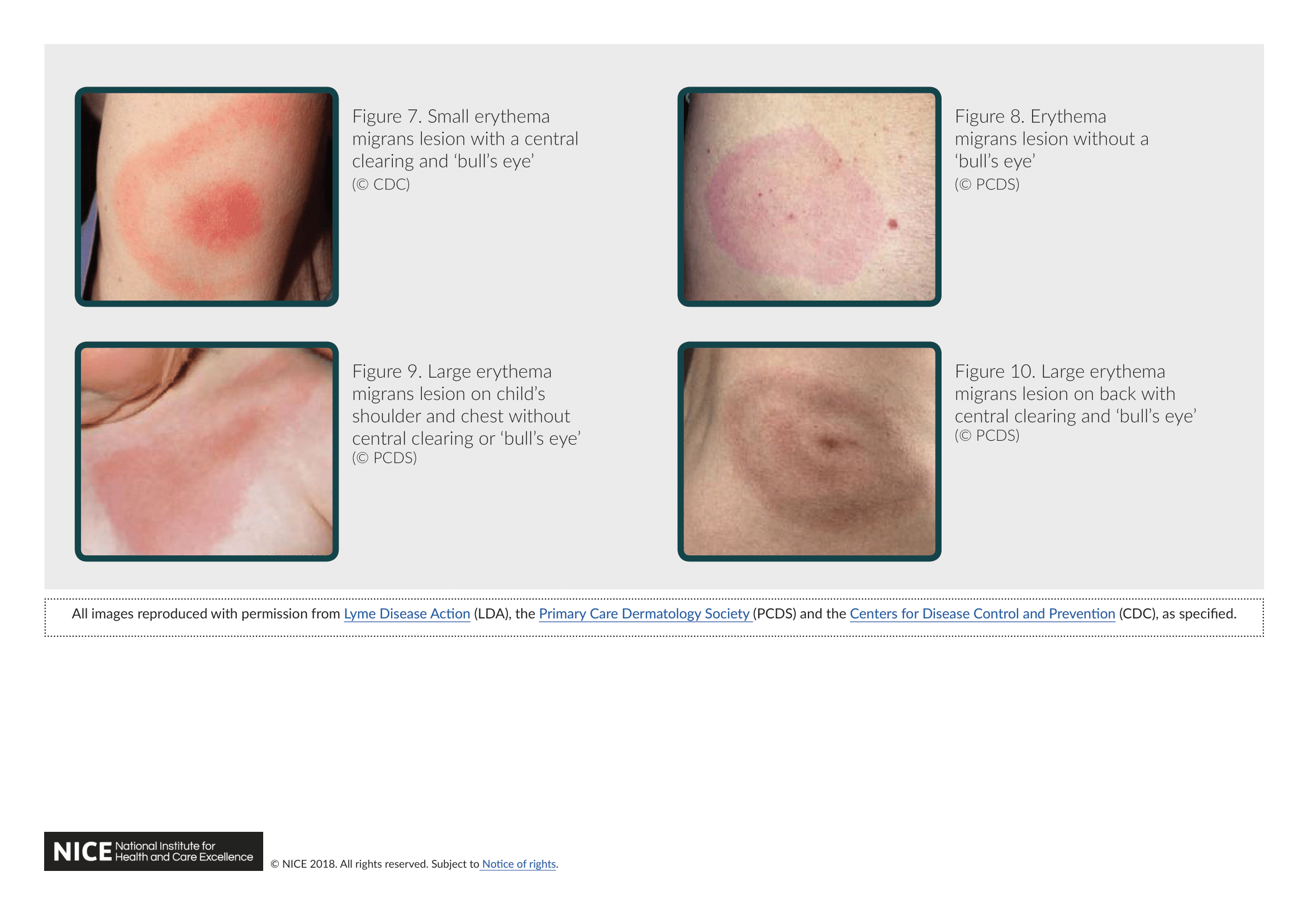Tick bite
Most tick bites are harmless and only a small number of ticks are infected with the bacteria that cause Lyme disease.

Picture credit: Skin deep
A tick bite can only cause Lyme disease in humans if the tick has already bitten an infected animal.
Ticks that may cause Lyme disease are found all over the UK, but high-risk areas include grassy and wooded areas in southern England.
Ticks are most active in spring, summer and early autumn. Symptoms appear on average 14 days after the tick bite, however can occur between 2 days and 3 months.
Please see your GP if your child experiences any of these symptoms after a tick bite: You will need to inform your GP that your child had a tick bite.
- A circular red rash around the area of the bite. The rash may be white in the middle and look like a “bulls eye”. See below for pictures of the rash
- Hot and shivery
- Headaches
- Aching joints and muscles
- Muscle weakness
- Extreme tiredness
- Tender glands
- Feeling sick
- Facial weakness (droop on one side of the face)
Treatment for Lyme disease is with antibiotics and is most effective if started as early as possible.
Antibiotics are not used for prevention of Lyme disease following simple tick bites.
Speak to your doctor if your symptoms come back after treatment with antibiotics or they do not start to improve
Do not worry if all of the tick has not been removed. Please do not try to dig out retained parts as this will increase the risk of skin infection. Retained parts will usually work their way out within a couple of days.






